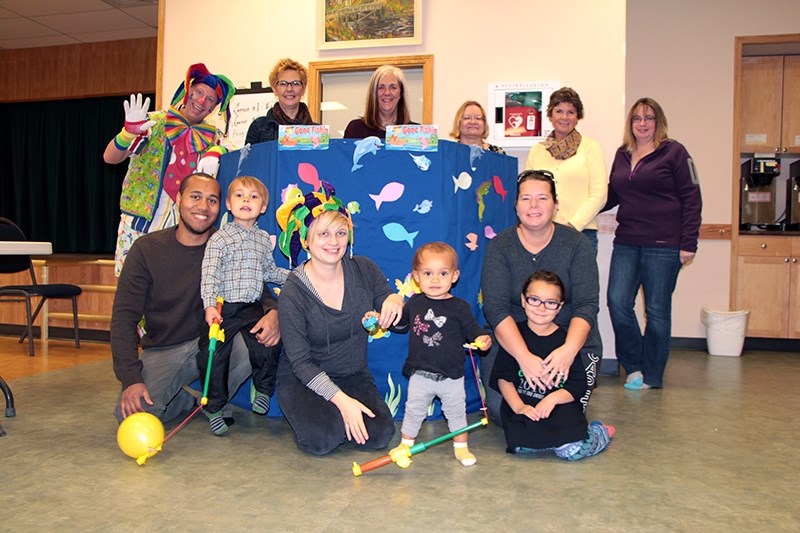It was a little unusual seeing toys littering the main hall of the Athabasca Senior’s Centre on Oct. 15, but it was for a good cause.
Parents and kids alike involved in the Athabasca Mentorship Program, run by Family and Community Support Services out of Athabasca County, were together celebrating 15 years in service.
“This is a program that happens over the lunch hour,” said co-ordinator Karen Wintonyk. “It’s easy to get mentors, to get people to volunteer, because everybody gets a lunch hour usually. So you can go in over the student’s lunch hour, and they can have lunch together with the student. Then they can – for the next part of the hour – they can play games. They can go to the gym. They can do crafts. They can bake. They can do all kinds of things.”
The program officially started in the community in 2000, but it took about a year to get things running smoothly, Wintonyk said.
“Basically, they had had a Big Brothers/Big Sisters program and it was just, I think it was harder and harder to get funding, harder to pay the co-ordinator and stuff like that,” she said. “Then, the provincial program came out with an in-school mentoring program. They decided that they would then fold the Big Brothers/Big Sisters program and then start an in-school mentoring program.”
The benefits of the program, which pairs adults with Grade 3 and 4 students one day a week, are plenty, Wintonyk said.
“They have that positive adult role model in their lives, so it’s somebody that’s doing one-on-one with them,” Wintonyk said. “It helps them with social skills, with self esteem. Maybe some kids are getting bullied. Some kids actually tend to do better in school. They’re more productive. They’re kids that maybe didn’t want to go to school but when their mentor is there that day, they really want to go to school.”
She added that kids who participate in the program are less likely to deal with drug and alcohol abuse and are more likely to continue their education.
Currently, there are about 20 volunteers involved in the program, however, Wintonyk noted there is always a demand for more.



